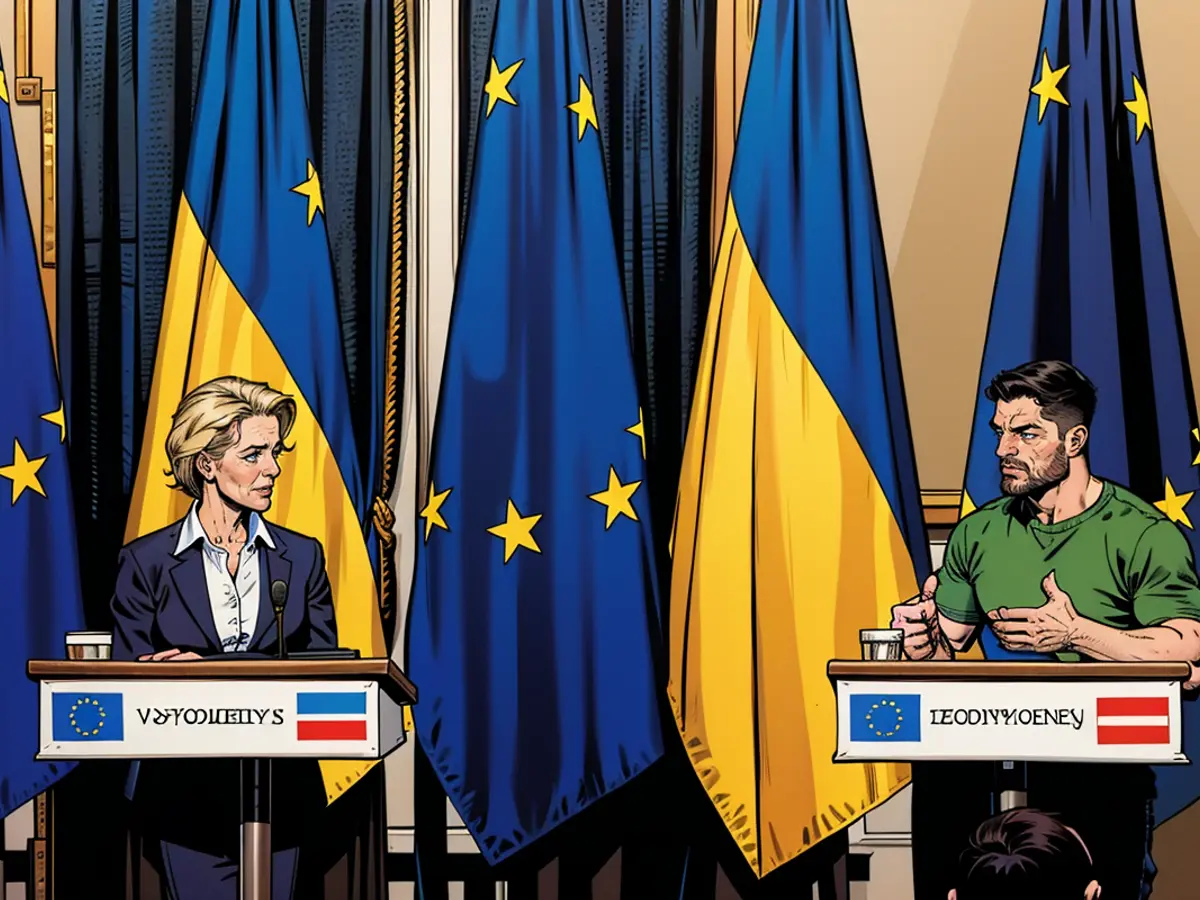Formal discussions initiated between Ukraine, Moldova, and the EU, yet neither nation anticipated quick accession to the union.
Ursula von der Leyen, the president of the European Commission, posted on X: "Kudos to Moldova and Ukraine for starting accession talks. This is fantastic news for the folks in Ukraine, Moldova, and the entire European Union. The road forward may be tough but filled with potential."
These two countries submitted their applications to join the EU in 2022, shortly after Russia initiated a full-scale invasion of Ukraine. Although the union has generally been supportive of Ukraine and has provided over $100 billion, according to EU data, the journey to becoming an EU member for either country won't be plain sailing.
Hungary, Russia's chief ally within the EU, has hesitated on various matters regarding Ukraine, such as military support and financial aid. In December of the previous year, Hungarian Prime Minister Viktor Orban announced he would obstruct Kyiv's effort to begin accession talks. However, Orban later withdrew his objections, although he'll still have chances to thwart Ukraine.
Joining the EU requires a country to meet specific criteria before engaging in detailed discussions about various issues, such as economic standards and the rule of law. There are 35 chapters in total, all of which need unanimous agreement among the negotiating parties, including the 27 EU member states. The process of initiating, negotiating, and closing all 35 chapters is projected to take more than a decade for both Moldova and Ukraine.
Neither country has yet to fulfill the criteria necessary to even commence this stage of the negotiations. Meeting the criteria can be complex for Ukraine since it's challenging to meet the required standards while under invasion and engaged in a war.
Similarly, Moldova experiences domestic problems, as the self-declared Moldovan independent state of Transnistria aims for a connection with Russia while the rest of the country seeks a relationship with Europe. Transnistria remains recognized internationally as part of Moldova, but some may argue that the country cannot join the EU until this issue is resolved.
Beyond the technical and practical aspects of negotiations, there is a political dimension that may complicate matters. Extending the bloc to Eastern Europe could have consequences for the remaining EU member states. It's expected that both Ukraine and Moldova will be net recipients of the EU budget, which makes it a hard sell for existing EU nations, as their spending will increase and their overall share of the budget will decrease.
There will also be implications for industry. For instance, Ukraine has already had friction with European partners concerning its agricultural sector. Poland, one of Ukraine's strongest supporters in its battle, briefly prohibited Ukraine from exporting grain into the country due to its adverse impact on Polish farmers. The conflict intensified, resulting in Poland temporarily halting military support for Ukraine.
More importantly, admitting Ukraine and Moldova into the bloc would mean incorporating around 40 million new EU citizens from Eastern Europe, allowing them freedom of movement within the union. This could mean a significant influx of people escaping a recent war zone.
Additionally, accepting Ukraine and Moldova into the bloc would change the power balance within the EU, moving it further east. Even though there are no strict guidelines about which member states have similar views on various issues, it's reasonable to infer that eastern countries might have different political perspectives compared to Southern and Western European countries.
This could lead some existing EU member states to slow down and obstruct the process unless safeguards are put in place to secure their privileged positions within the bloc.
The initiation of negotiations signifies an essential step for those hoping to join the bloc, making a move further from Russian influence and toward the EU's embrace. However, in reality, these opening discussions are mostly symbolic, and there is still a long way to go before either country becomes a full member state.
Read also:
Despite Ursula von der Leyen's praise for Ukraine and Moldova's efforts to join the EU, the world watches as these two nations navigate a long and challenging journey towards membership. Europe, being a significant part of this journey, will play a crucial role in shaping their futures.







